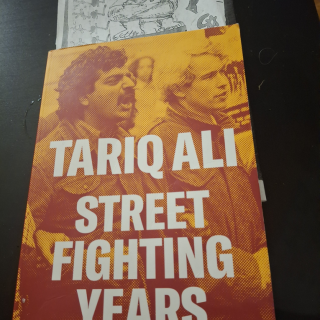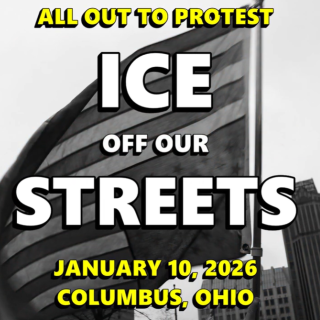Who knew? Before there was Fox-TV’s Empire, there was John Dolphin (Broadway veteran Stu James),who from 1948-1958 was an African American impresario and entrepreneur who pioneered “Race music” at a critical time when Rock ‘n’ Roll was being born. AsRecorded in Hollywood splendidly dramatizes through music, dance, dialogueand more, this trailblazer presided over his show biz domain from the record shop Dolphin’s of Hollywood. However, as this bioplay quickly reveals in Act I, the emporium from whence Dolphin ruled his mini-empire was not located on then-lily white Hollywood Blvd., where not- so-angelic Angeleno realtors literally refused to rent a space out to him, even when offered rent in advance in hard cold cash.
Talk about the proverbial “Boulevard of Broken Dreams!” But you can’t keep a good man down and the ambitious, undaunted, admirable yet flawed Dolphin opened his record store on Central Avenue, the heart of Black Los Angeles, near the nitery Club Alabam, which historian Donald Bogle described as “glamorous” in his 2005 book Bright Boulevards, Bold Dreams, The Story of Black Hollywood. A bold dreamer, “Lovin’ John” (as Dolphin was nicknamed) went on to become a producer with his own labels; DJs such as Huggy Boy (the nimble Matt Magnusson) broadcast live from the shop; and Dolphin introduced various business innovations delineated on the boards at the Kirk Douglas Theatre. In the process, Dolphin advanced the careers of talents including Sam Cooke (Thomas Hobson), Jesse Belvin (the “Earth Angel” singer/co-creator is portrayed by Broadway vet Wilkie Ferguson III) and jazz great Charles Mingus.
One would think that this Black businessman would have been hailed as a “model minority,” but one would be dead wrong. Although Dolphin earned a loyal, integrated following of Blacks and whites, the Caucasoid L.A. establishment led by notoriously racist LAPD Chief William H. Parker saw the “race mixing” spawned by the saucy sounds emanating from Dolphin’s of Hollywood where - gasp! - there would be interracial rug cutting as a threat to white supremacy and racial separation. The fact that the canny Dolphin, with his business wiles, was outselling his Caucasian competitors also didn’t sit well with the guardians of a form of American apartheid. While Recorded doesn’t depict Parker per se, he’s repeatedly mentioned, while a pair of LAPD pigs (Ryan Murray and Tyler Ruebensall) are.
These running dogs dog Dolphin throughout the first and second acts. As his granddaughter, Jamelle Dolphin (who produced the play and co-wrote the book with Matt Donnelly), is quoted in press notes as saying: “By naming the store ‘Dolphin’s of Hollywood,’ he was telling the world that he was going to stare discrimination in the face and not blink.” So while the highly entertaining Recorded has a toe-tapping score with original songs composed by Andy Cooper and eight covers including Sam Cooke’s “I’ll Come Running Back to You”, lively, eye-catching choreography by Cassie Crump for a cast of about 20, is well-acted and well-directed by Denise Dowse (who has received 4 NAACP Best Director awards), this is also very much a play about racism.
Indeed, Recorded is uncannily prescient in that it deals with the subject of the day: Relations between the police and Black community, and especially the issue of police abuse of power of African Americans and their response to it. It’s amazing that this story set from 1948 to 1958 is, alas, as relative today as it was then - perhaps even more so now.
2016 America is a powder keg waiting to blow up. Ours is a highly militarized society wherein Washington is perpetually at war, with untold billions wasted on the Pentagon. Chairman Mao may have rather famously said, “Political power grows out of the barrel of a gun,” but our popular culture declares that “Violence is the solution to problems.” This is true in mindless entertainment, from videogames to TV to movies, typified by endless superhero flix, shoot-’em-ups and the like. In addition to this, there’s a trend of Blacks killing whites on the big screen, including Jamie Foxx in Django Unchained, Samuel L. Jackson in The Hateful Eight, the Civil War and Reconstruction era-set The Free State of Jones, The Legend of Tarzan and last but certainly not least, Nate Parker’s upcoming slave revolt epic The Birth of a Nation, about the most successful uprising of Blacks in bondage in American history - heroic Nat Turner’s 1831 insurrection way down yonder in the land of cotton.
To this combustible concoction, toss in the widespread, easy availability of guns, courtesy of the NRA and company. Place this against the backdrop of Blacks (mostly unarmed) being regularly killed by police for minor (if any) infractions (Freddie Gray was “guilty” of glancing while Black), and the fact that few officers are held accountable and even fewer are convicted in connection to these deaths. Police brutality is probably the match that will set the American tinderbox afire - and it may already be burning. Given all of the above, a dispassionate, objective observer didn’t have to be Nostradamus to predict that enraged African Americans might react with violence against their perceived, unpunished oppressors, avail themselves of those all too easy to get weapons and - for those who served in the U.S. armed forces (such as the purported Dallas sniper who shot about a dozen policemen) - put their military training to use to hold “accountable” those believed to be responsible for the deaths of all too many Blacks. In little more than a week, shootings at police have been reported in Michigan, Washington, D.C., Dallas and now the bullet baton has been passed to Baton Rouge.
Who knows if there is now a new deadly underground resistance coordinating these ambushes, et al, that is far more extreme than anything America witnessed in the sizzling sixties and seventies? On July 17, the president of a Fraternal Order of Police told CNN that “Law enforcement is under attack.” Well, you don’t have to be Albert Einstein to figure out that the best way to put an end to shootings of police is to end the excessive use of force against Blacks. And you don’t have to be Mahatma Gandhi or Dr. King to know that violence begets violence. In any case, as both establishment political parties are about to present their national nominating conventions shortly, who knows if all hell will break loose?
Recorded becomes a Civil Rights play - but instead of turning to the gun, at the prodding of Lovin’ John’s wife, Ruth Dolphin (Jenna Gillespie), the beleaguered Blacks of 1950s L.A. turn to a mass movement of peaceful protest. Although some of the lyrics in this show’s songs are too right on the nose, overall Recorded is a skillfully wrought production balancing entertainment with a message that, alas, remains all too relevant.
There are too many members of the ensemble to mention all of the excellent hoofers, singers and actors/actresses onstage at the Kirk Douglas, but one who caught my eye is the preternaturally lovely Ashley Lynette Brown, who lights the stage up with her effervescent smile and rollicking footwork. Speaking of which, Lap Chi Chu’s lighting is expressive, as is Bruce Goodrich’s set, which includes in the background the oil wells that once figured so prominently in L.A.’s economy. Mylette Nora’s period costumes also help to set the mood for the era portrayed. Musical director Abdul Hamid Royal and arrangements by Kevin Toney, Andrae Alexander plus by John Gentry Tennyson, who also did orchestrations, provide this musical with the sound that brings Recorded wonderfully alive, beautifully performed live by a four-piece (or was it five?) band.
As this two-acter shows, John Dolphin was an imperfect person, but one who deserves to be remembered, which this plays does so well. Recorded in Hollywood sets the record straight and highlights the crusading role Leon Washington (Frank Lawson), founding publisher of the L.A. Sentinel. Shedding light on an important but largely forgotten part of Rock and L.A. history, it will get your tootsies bopping and thoughts a-popping.
Recorded in Hollywood is a guest production being presented on Thursdays, Fridays and Saturdays at 8:00 p.m., Saturdays and Sundays at 2:00 p.m. and Sundays at 7:00 p.m. through Aug. 7 at the Kirk Douglas Theatre, 9820 Washington Blvd., Culver City, CA 90232. Free parking is beneath Culver City City Hall, off of Duquesne Ave., just south of Culver Blvd. For more info: (213)972-4488; www.RecordedInHollywood.com.



